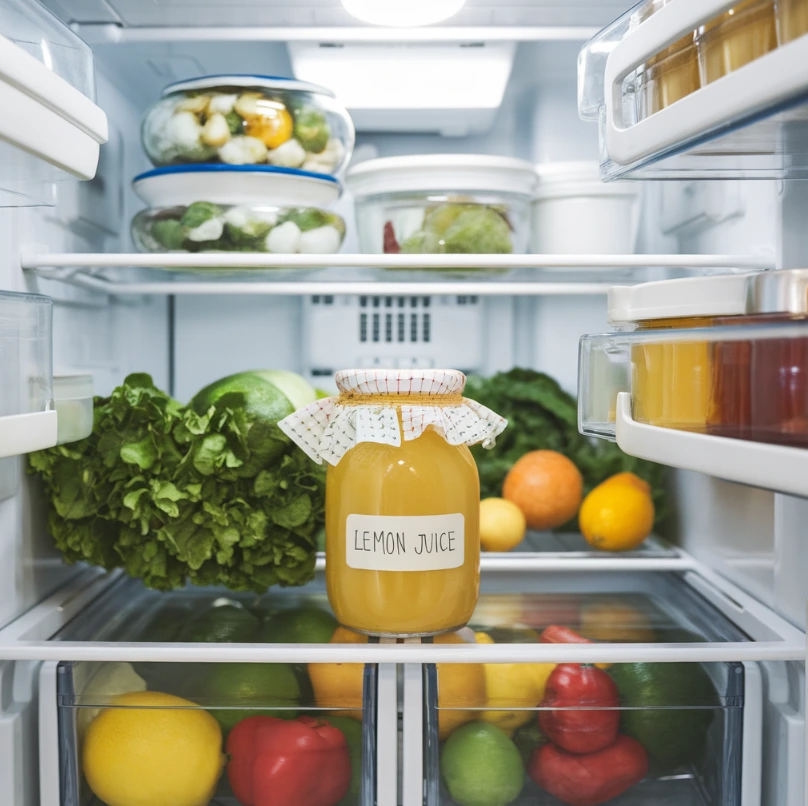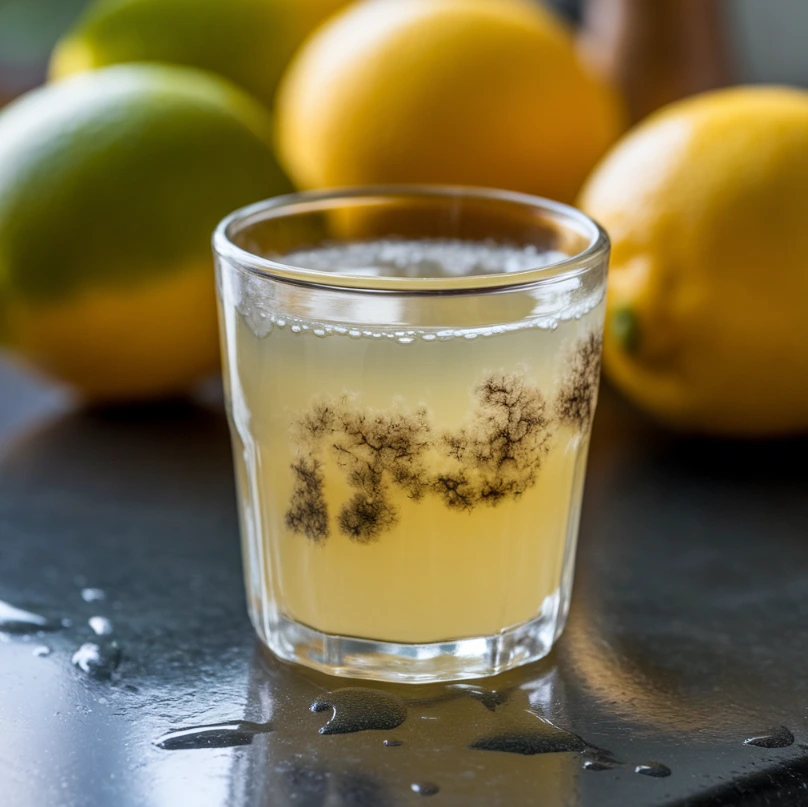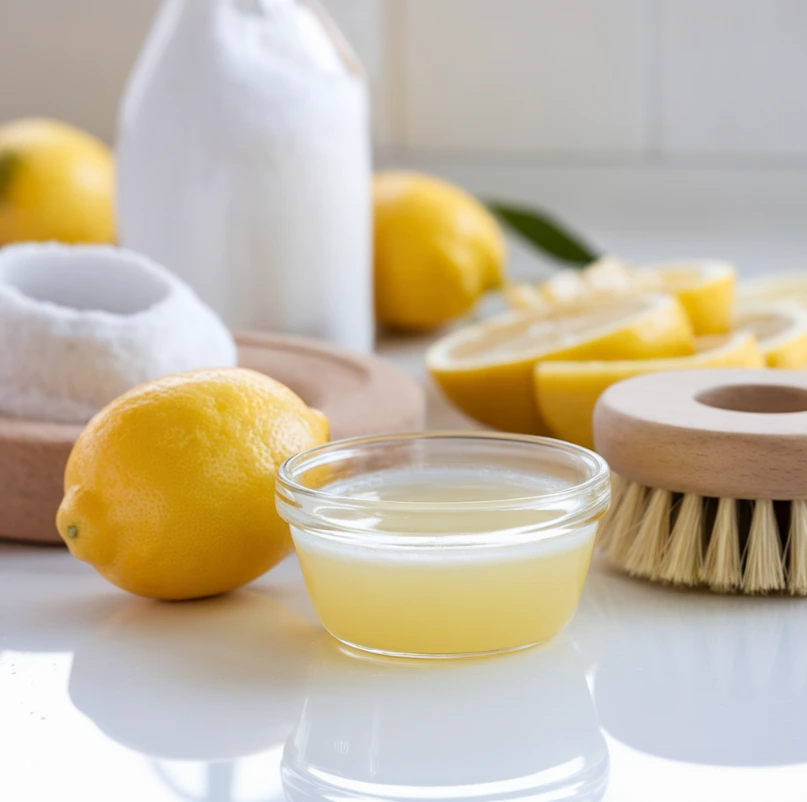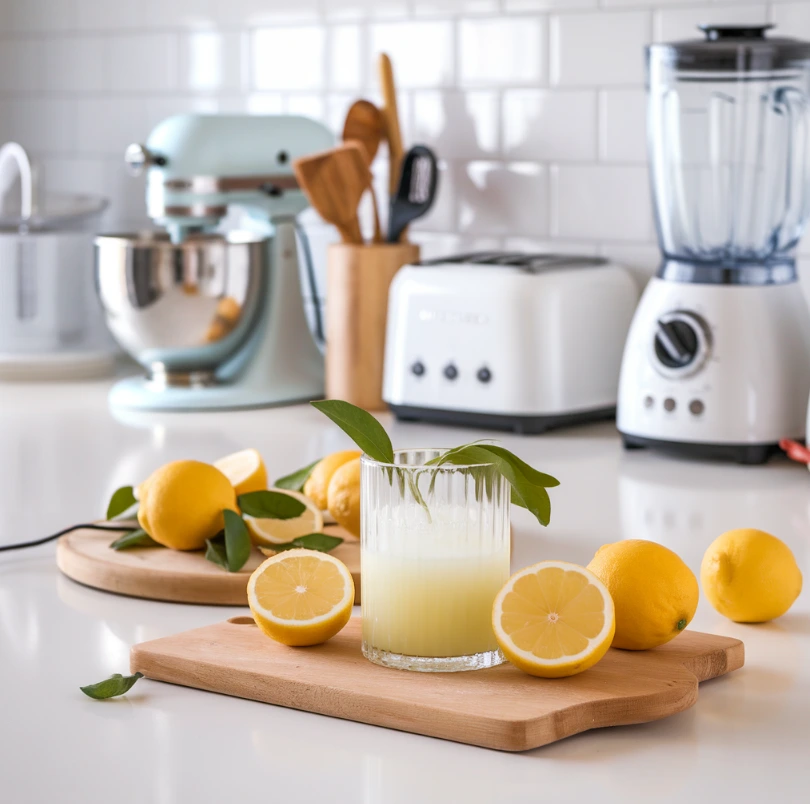Does lemon juice go bad? This is a common question in kitchens worldwide, and for good reason. Lemon juice is prized not only for its bright flavor but also for its versatility in cooking, cleaning, and preservation. However, understanding how to store it properly and recognize when it has spoiled is essential. Above all, this knowledge helps ensure safety and prevents waste.
In this guide, we’ll explore everything from storage tips to creative uses, helping you make the most of this essential ingredient.
Does It Go Bad?
Yes, lemon juice can spoil. While its acidity slows bacterial growth, it is not immune to deterioration. For example, factors such as storage conditions and packaging significantly affect its shelf life.
Moreover, whether it’s freshly squeezed or store-bought plays a key role in how long it lasts. In fact, bottled varieties tend to last longer due to added preservatives.
If you’re curious about prolonging the life of other ingredients, explore our storage hacks for practical tips.
How Long Does It Last?

Freshly Squeezed:
Freshly squeezed juice usually lasts 2–3 days in the refrigerator. Because of its lack of preservatives, it spoils more quickly than store-bought options.
Bottled:
Unopened bottled varieties can last several months beyond the “best by” date if stored in a cool, dry place. Once opened, they should be refrigerated and used within 6–12 months.
Frozen:
Freezing extends its usability up to 6 months. For example, freezing it in portion-sized cubes makes it easy to use later.
On the other hand, improper storage at room temperature can significantly shorten its shelf life. In addition, if you’re interested in freezing other essentials, check out our freezer-friendly recipes.
Signs of Spoilage

Recognizing when lemon juice has gone bad is essential for maintaining food safety and avoiding waste. For instance, subtle changes in appearance, smell, and taste often indicate that it’s no longer safe to use. Below are the most common signs of spoilage to watch out for:
Color Changes
One of the first signs of spoiled lemon juice is a change in its color. Fresh juice is typically bright and clear, but when it begins to spoil, it may darken or become cloudy. These changes often signal chemical or bacterial degradation, making the juice unsuitable for consumption.
Off Odor
A sour or fermented smell is another clear indicator that your lemon juice has gone bad. This unpleasant odor suggests bacterial activity has taken hold, rendering the juice unsafe. Always rely on your sense of smell if you’re unsure about its freshness.
Taste Alteration
Taste is another reliable way to identify spoilage. Spoiled lemon juice often develops an excessively bitter or unusual flavor that differs significantly from its typical tangy, citrusy profile. If it doesn’t taste right, it’s better to discard it.
Mold or Sediment
Visible signs, such as mold growth or unusual sediment, are definitive indicators that lemon juice is no longer safe to use. Mold, in particular, can be harmful to consume and should not be ignored. Similarly, strange particles floating in the juice suggest contamination or spoilage.
Why Spotting Spoilage Matters
Learning to identify these signs ensures you maintain food safety and avoid unnecessary waste. Additionally, being vigilant about the condition of your ingredients helps you prepare meals with confidence, knowing they are fresh and safe to consume.
If you’re curious about spotting freshness in other pantry items, visit our guide to ingredient safety for helpful tips.
By staying alert to these spoilage signs, you can ensure that your kitchen remains a safe and efficient space for cooking and food preparation. With proper care and attention, you’ll also extend the life of your ingredients and reduce waste.
Best Storage Practices
Proper storage is critical for maintaining the freshness and usability of lemon juice. In addition, taking simple yet effective steps can significantly extend its shelf life, whether it’s freshly squeezed or store-bought. Below, we break down the best methods for preserving its quality.
Refrigeration
Always refrigerate freshly squeezed or opened bottled lemon juice immediately after use. Because of this, it’s vital to store it in an airtight container to prevent contamination from external odors or bacteria. Not only does refrigeration maintain its freshness, but it also helps retain its vibrant flavor for up to 2–3 days for fresh juice and several months for bottled varieties.
For added convenience, consider labeling your containers with the date they were prepared or opened. This practice makes it easier to track freshness and ensures you consume the juice before it starts to spoil.
Freezing
Freezing is one of the most effective ways to preserve lemon juice for long-term use. For example, pour it into ice cube trays to create portion-sized cubes perfect for recipes. Once frozen, transfer the cubes into freezer bags or airtight containers to save space and protect them from freezer burn.
As a result, you’ll have fresh-tasting juice ready whenever needed—whether for cooking, cocktails, or household uses. Additionally, freezing helps prevent waste, allowing you to use every drop over an extended period.
Avoid Room Temperature
Lemon juice should never be left at room temperature for extended periods, as this accelerates spoilage and reduces its shelf life. Therefore, always refrigerate it promptly after use, even if you plan to use it later the same day. Exposure to warm temperatures can lead to a rapid decline in quality, compromising both flavor and safety.
Organize Your Kitchen for Better Storage
Properly storing lemon juice is just one part of an efficient kitchen setup. Similarly, organizing your pantry and freezer can help you keep other essentials fresh and ready for use. For more tips on improving your kitchen storage, check out our meal prep ideas to maximize efficiency.
By following these best storage practices, you can ensure that your lemon juice stays fresh, flavorful, and ready for use whenever you need it. With the right approach, you’ll enjoy its benefits for longer while reducing waste and maintaining its quality.
Creative Uses

Lemon juice is more than just a culinary ingredient—it’s a powerhouse of versatility with practical applications far beyond the kitchen. Not only does its natural acidity enhance flavors, but it also serves as an effective solution for various household tasks. Whether you’re looking to clean, preserve, or boost the taste of your favorite dishes, lemon juice has you covered.
Lemon Juice as a Natural Cleaner
Lemon juice’s acidity makes it an excellent natural cleaning agent. For instance, mixing it with baking soda creates a powerful cleaner capable of tackling stubborn stains on countertops, cutting boards, and even bathroom surfaces. It’s an eco-friendly alternative to harsh chemical cleaners and leaves a refreshing citrus scent behind.
Skincare Benefits of Lemon Juice
Its natural properties extend to skincare as well. Use diluted lemon juice as a toner to help balance oily skin or lighten minor blemishes. However, be cautious and ensure proper dilution to avoid irritation. Incorporating this simple routine can give your skincare regimen a refreshing twist.
Enhancing Flavors with Lemon Juice
Add a splash of lemon juice to teas, soups, or cocktails for an extra zing. Its bright, tangy flavor elevates everything from savory dishes to sweet beverages, making it an indispensable tool for enhancing recipes. For example, a drizzle can transform a bland soup or add complexity to a refreshing summer drink.
Lemon Juice as a Natural Preservative
Lemon juice is also a natural preservative. Brush it onto sliced fruits like apples or avocados to prevent browning caused by oxidation. This simple trick not only preserves the fruit’s appearance but also its flavor, making it perfect for meal prep or party platters.
Explore More Creative Kitchen Uses
Moreover, its versatility means it pairs well with other ingredients to create exciting flavor combinations. If you’re looking for ways to get creative in the kitchen, explore what to add to macaroni and cheese for extra flavor for inspiration.
FAQs
Can it go bad?
Yes, lemon juice can spoil if it is not stored properly or used within an appropriate timeframe. Its natural acidity helps to slow bacterial growth, but improper handling, such as leaving it at room temperature for extended periods, can lead to spoilage. Recognizing signs like discoloration, a sour odor, or unusual taste is key to identifying when it’s no longer safe to use.
How should I store freshly squeezed juice?
To maintain its freshness, store freshly squeezed lemon juice in a sealed, airtight container and place it in the refrigerator immediately after preparation. It’s best to consume it within 2–3 days for optimal flavor and safety. For long-term storage, consider freezing it in small portions, such as ice cube trays, for easy future use.
Does bottled juice expire?
Yes, bottled lemon juice does expire. However, proper storage can extend its usability well past the “best by” date. Keep unopened bottles in a cool, dry place, and once opened, always refrigerate them. For maximum quality, use the opened bottle within 6–12 months.
In conclusion, knowing how to store and handle lemon juice properly ensures that this versatile ingredient remains fresh and ready for use. Whether you’re working with fresh or bottled varieties, simple storage techniques can make all the difference in prolonging its shelf life and maintaining its quality. For more insights and tips on common kitchen ingredients, be sure to explore our FAQs section for expert advice.
Conclusion
In short, lemon juice is an incredibly versatile ingredient, offering countless benefits not only in the kitchen but also in household tasks. It can elevate the flavor of dishes, preserve fresh produce, and even serve as a natural cleaning solution or skincare product. However, to fully enjoy these benefits, it’s essential to store it correctly and pay close attention to its shelf life. Proper storage not only ensures its freshness and safety but also prevents unnecessary waste, saving you both time and resources in the long run.
Above all, being mindful of spoilage signs like changes in color, odor, and taste helps you identify when it’s time to discard it. By following simple yet effective storage tips, such as refrigerating or freezing it in portion-sized cubes, you can extend its usability and keep it ready for your next culinary or household endeavor.
For example, incorporating these practices into your daily routine allows you to make the most of this zesty staple. Whether you’re preparing a flavorful dish, preserving cut fruits, or simply adding a refreshing twist to your beverages, lemon juice remains a valuable addition to your pantry. Finally, for more ideas, recipes, and inspiration, explore Tasty.co, AllRecipes, and Delish. With a little care and knowledge, you’ll ensure that every drop of this essential ingredient is put to good use, making your cooking and household tasks both efficient and delightful.

